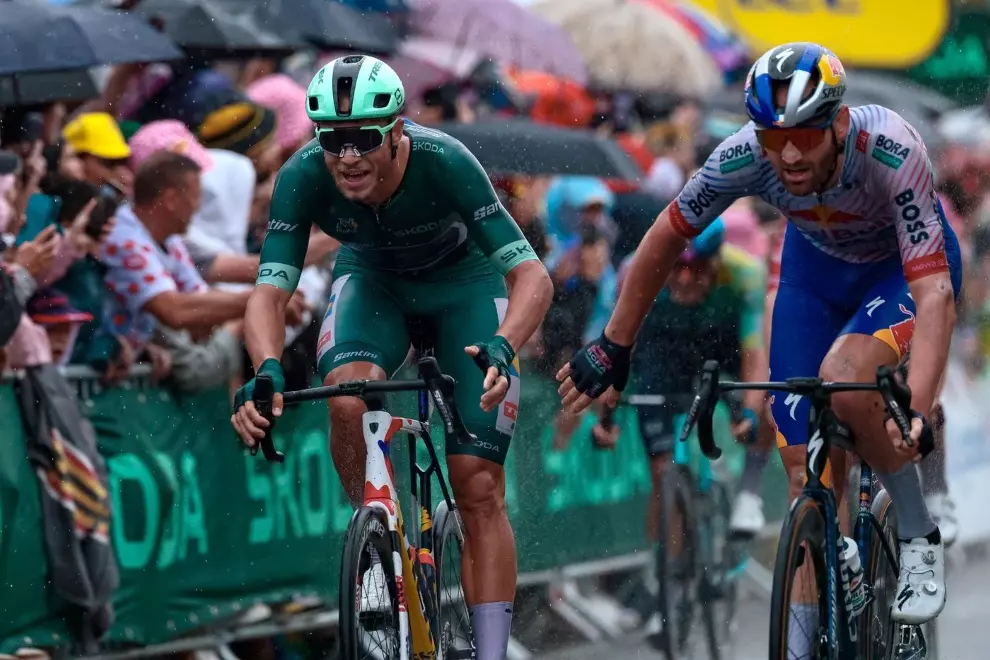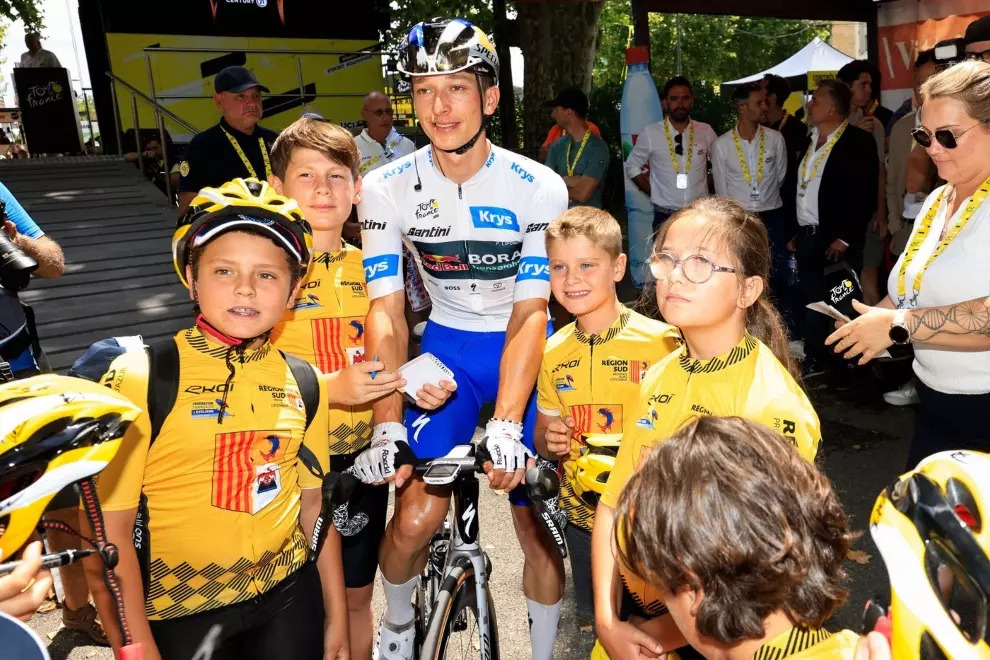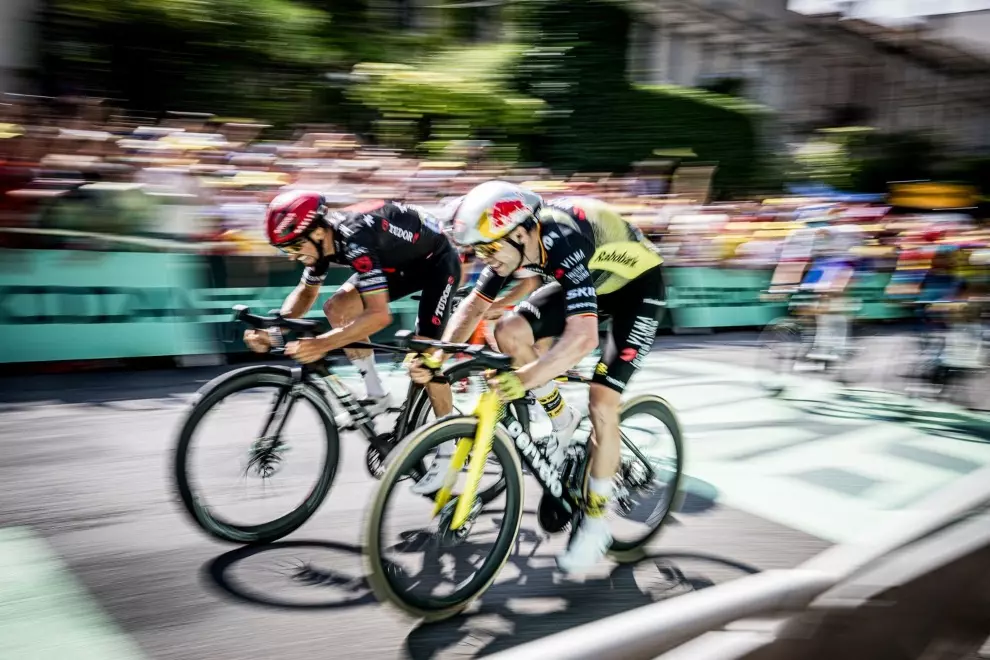“The African continent is full of talent,” Lappartient said, “and we will make sure that the whole world witnesses it during the UCI road world championships in 2025 and beyond.”
To achieve that goal, the UCI has been training gifted African riders at the World Cycling Centre (WWC) at its Aigle, Switzerland, headquarters as well as at the UCI WCCA satellite in Paari, South Africa. But that’s not all, of course. The organisation has also established a training programme in Rwanda itself to help the country’s riders make a strong showing at their home world championships. Leading that programme is a 34-year-old Belgian named Simon Hupperetz, a former MTB rider and language teacher and a fully qualified coach with a UCI Level 3 Coaching Diploma. He was also a co-founder and Sports Director of Rwanda’s first UCI Continental team, the Benediction Continental Cycling Team, and coached MTB rider Nathan Byukusengein for the 2016 Rio Olympic Games.
“Our main focus is on youth development, one of the biggest missing links in cycling in Rwanda,” said Hupperetz, who is based in the capital Kigali. He noted that he was focusing on athletes in the Under 15 and Under 17 categories so that there would be a competitive Rwandan Junior team at the world championships. Thanks to the new Field of Dreams bike centre in Bugesera, which was launched by the Israel-Premier Tech team, these young athletes will be working with state-of-the-art facilities and will have the chance to test and improve their skills in weekly races.

The bike centre is being built on 16 acres of land and will eventually offer young Rwandan cyclists a pump track, a racetrack and an academy. When completed, it will be able to help up to 120,000 young Rwandans between the ages of 6 and 18 to take up cycling and develop their skills. The centre is part of Israel-Premier Tech’s Racing for Change project, which the team launched last year when it took under its wings Rwanda’s only women’s cycling team and initiated a social riding programme for children in the Bugesera district. The team’s know-how, equipment and training were indispensable to helping 16-year-old Aline Uwera last year become the first female Rwandan cyclist to finish on the podium of the African Continental Championships road race.
Hupperetz greatly admires the mental strength of his Rwandan riders, citing the 2016 Grand Tour of Algeria when the Rwandan national team, which he coached for a year, rode through three weeks of bitter cold and even snow, with temperatures often dropping below 5°C. “I never heard a rider complain, even though none of them were used to racing in the cold,” he said.
The best of the cyclists will also benefit from additional training at the WCC and WCCA, Hupperetz said and explained that he is also managing an education programme for people working in all of cycling’s associated professions, such as coaches and mechanics. “All of them are part of the same fragile ecosystem,” he said. “When one link is missing, you cannot progress. Coaches, teachers and educators are part of the success of the entire project. Mechanics, soigneurs and commissaires all have a part to play in the process and can enable riders to bloom.”
Rwandan cycling has already made great strides since 2006. For example, the Tour of Rwanda has been promoted to a UCI 2.1 category race, the country’s first UCI Continental Teams were founded over this period and new cycling clubs have been created. So Hupperetz is optimistic. “We have some promising young riders currently racing in the Junior and Under 23 ranks and with better support and racing exposure, we believe that they will do much more than just participate in 2025,” he said. “We can build on the progress already made to catch up with the top African cycling nations such as Eritrea and South Africa. It really is possible.”




